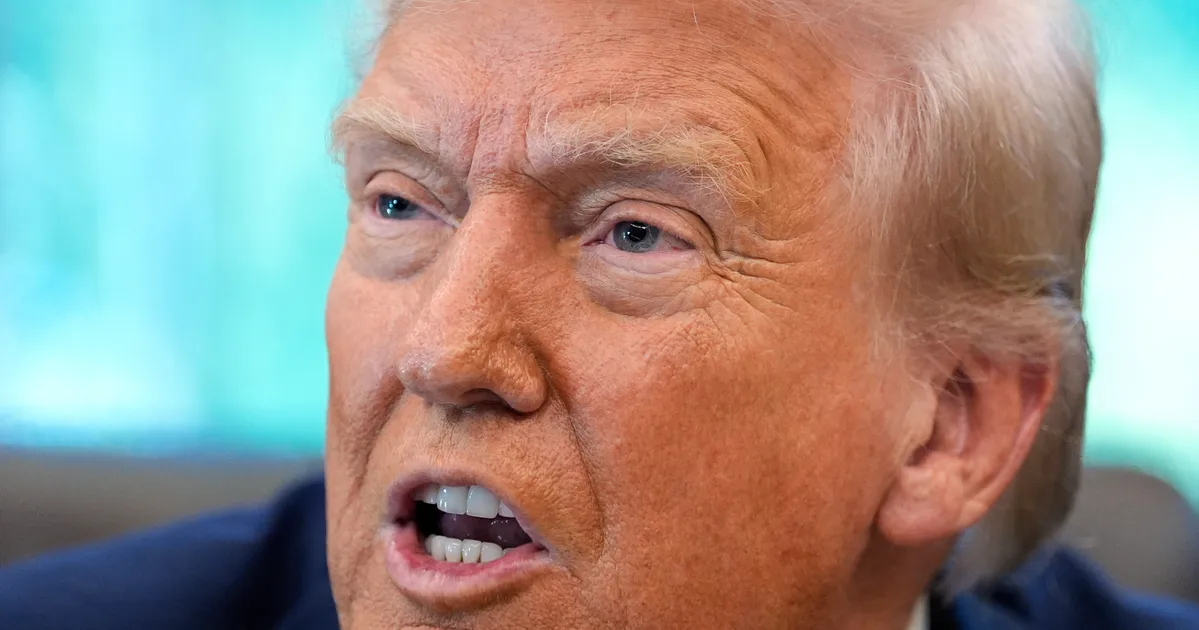
LOADINGERROR LOADING
NBC News medical analyst Dr. Vin Gupta warned of the consequences that President Donald Trump’s imposed $100,000 annual visa fee for highly skilled foreign workers could have on those seeking health care in the U.S., especially those living in Republican states.
“This is going to have significant impacts, not just in the short term, but very much in the medium term here and that’s the irony of a lot of these policies, they’ll impact red states, and it’s not going to be felt immediately,” Gupta said in a Friday interview with MeidasTouch.
Advertisement
The president on Friday signed a proclamation imposing a $100,000 annual fee for H-1B visas meant for highly skilled foreign workers who fill difficult-to-hire jobs in the U.S., sometimes for a below-annual wage. Per Axios, the fee could be paid by either the visa holder or their corporate sponsor.
Prior to Friday’s proclamation, the average H-1B visa administrative fees totaled around $1,500, according to the BBC.
Advertisement
Gupta told MeidasTouch’s Ben Meiselas that “we need foreign medical graduates, across the spectrum, wherever they’re coming from, to care for an aging society.”
Meiselas cited a social media post from critical care doctor and podcaster Nick Mark, who said the fee would be “devastating” for the medical field due to the large numbers of medical residents in hospitals who are “international medical graduates.”
Gupta’s aforementioned policy effects on the “medium term” point to the fact that it takes “anywhere from four to six years for a resident to graduate, get skilled, and get credentialed.”
Advertisement
“It’s going to show impacts once Trump’s out of office, just like NIH cuts,” he warned.
He added that it’s more costly for hospitals to employ a board-certified doctor than someone in a medical residency.
20 Years OfFreeJournalism
Your SupportFuelsOur Mission
Your SupportFuelsOur Mission
For two decades, HuffPost has been fearless, unflinching, and relentless in pursuit of the truth. Support our mission to keep us around for the next 20 — we can’t do this without you.
We remain committed to providing you with the unflinching, fact-based journalism everyone deserves.
Thank you again for your support along the way. We’re truly grateful for readers like you! Your initial support helped get us here and bolstered our newsroom, which kept us strong during uncertain times. Now as we continue, we need your help more than ever. We hope you will join us once again.
We remain committed to providing you with the unflinching, fact-based journalism everyone deserves.
Thank you again for your support along the way. We’re truly grateful for readers like you! Your initial support helped get us here and bolstered our newsroom, which kept us strong during uncertain times. Now as we continue, we need your help more than ever. We hope you will join us once again.
Support HuffPost
Already contributed? Log in to hide these messages.
“If you have less people populating and being willing and able to take those jobs, what’s going to happen? Same thing that’s happening with immigration more broadly, in our farms and other places,” Gupta said. “Physically, we’re just not going to have enough people to care for the demand and medical services that every American is going to need at some point.”
Advertisement
Gupta mentioned that the “irony” is that the policy is “probably going to impact red states more than blue states,” saying that in red states, there are more community hospitals, rural hospitals and “frankly, more places where American medical grads tend not to gravitate towards.”
Gupta went on to say foreign medical graduates will likely pursue training and careers in countries where “they’ll get paid,” “be more welcome,” and “their path will be a lot easier.”



